Increased muscle mass is a common goal for many people looking to improve their physique, strength, and overall health. Whether you’re an athlete, fitness enthusiast, or someone wanting to feel stronger, this guide will provide practical strategies to increase your muscle mass effectively.
Table of Contents
Key Takeaways
- Consistent resistance training is essential for muscle growth
- Proper nutrition and protein intake support muscle development
- Progressive overload is crucial for continuous muscle gains
- Adequate rest and recovery are as important as the workouts themselves
- Hormones play a significant role in muscle growth and maintenance
- Compound exercises are more effective for overall muscle mass increase
- Tracking progress helps you stay motivated and adjust your approach
Understanding the Science of Increased Muscle Mass

It’s important to understand how muscles grow to increase muscle mass effectively. You create small tears in your muscle fibers when you engage in resistance training. During rest periods, your body repairs these tears, making the muscles stronger and larger. This process is called muscle hypertrophy.
Several factors influence muscle growth:
- Mechanical tension: The force exerted on muscles during resistance training
- Metabolic stress: The buildup of metabolites during exercise
- Muscle damage: The micro-tears in muscle fibers that occur during training
These factors trigger a series of cellular responses that lead to muscle protein synthesis, the process by which your body builds new muscle tissue.
The Role of Nutrition in Muscle Growth

Nutrition plays a crucial role in building muscle mass. Your body needs the right fuel to repair and grow muscle tissue. Here are some key nutritional considerations:
Protein: The Building Block of Muscle
Protein is essential for muscle growth. It provides the amino acids necessary for muscle repair and synthesis. Aim to consume 1.6 to 2.2 grams of protein per kilogram of body weight daily. Good protein sources include:
- Lean meats (chicken, turkey, lean beef)
- Fish (salmon, tuna, tilapia)
- Eggs
- Dairy products (Greek yogurt, cottage cheese)
- Plant-based options (tofu, lentils, quinoa)
Carbohydrates: Fuel for Workouts
Carbohydrates are your body’s primary source of energy. They help fuel your workouts and support recovery. Include complex carbohydrates in your diet, such as:
- Whole grains (brown rice, oats, quinoa)
- Sweet potatoes
- Fruits
- Vegetables
Healthy Fats: Supporting Hormone Production
Healthy fats are important for hormone production, including testosterone, which plays a role in muscle growth. Include sources of healthy fats like:
- Avocados
- Nuts and seeds
- Olive oil
- Fatty fish
Effective Resistance Training Strategies

Resistance training is the cornerstone of muscle growth. Here are some strategies to maximize your muscle-building efforts:
Progressive Overload: The Key to Continuous Gains
Progressive overload involves gradually increasing the weight, frequency, or number of repetitions in your strength training routine. This challenges your muscles and stimulates growth. Implement progressive overload by:
- Increasing weight by 2-5% when you can complete all sets and reps with good form
- Adding an extra set to your exercises
- Increasing the number of reps per set
Compound Exercises: More Bang for Your Buck
Compound exercises work multiple muscle groups simultaneously, leading to greater overall muscle growth. Incorporate these exercises into your routine:
- Squats
- Deadlifts
- Bench presses
- Pull-ups
- Rows
Training Frequency and Volume
Aim to train each muscle group 2-3 times per week, allowing for adequate recovery between sessions. Your total weekly volume (sets x reps x weight) should be challenging but manageable.
The Importance of Rest and Recovery

Rest and recovery are often overlooked but are crucial for muscle growth. During rest periods, your body repairs and builds muscle tissue. Here are some recovery strategies:
- Get 7-9 hours of sleep per night
- Take rest days between workouts
- Practice active recovery (light cardio, stretching) on rest days
- Consider massage or foam rolling to alleviate muscle soreness
Hormones and Muscle Growth
Hormones play a significant role in muscle growth and maintenance. Key hormones include:
Testosterone
Testosterone is crucial for muscle protein synthesis and growth. To support healthy testosterone levels:
- Get adequate sleep
- Manage stress
- Maintain a healthy body fat percentage
- Include zinc and vitamin D in your diet
Growth Hormone
Growth hormone stimulates muscle growth and fat metabolism. To optimize growth hormone production:
- Get quality sleep
- Perform high-intensity exercise
- Manage stress levels
Insulin-Like Growth Factor (IGF-1)
IGF-1 promotes muscle growth and repair. To support IGF-1 production:
- Consume adequate protein
- Engage in resistance training
- Get sufficient sleep
Tracking Progress and Adjusting Your Approach
Tracking your progress is essential for staying motivated and making necessary adjustments to your muscle-building plan. Here are some ways to track your progress:
- Take progress photos every 4-6 weeks
- Measure your body circumferences (arms, chest, thighs) monthly
- Keep a workout log to track strength gains
- Use body composition measurements (like DEXA scans or bioelectrical impedance) every 3-6 months
| Measurement | Frequency | Purpose |
|---|---|---|
| Progress Photos | Every 4-6 weeks | Visual comparison of muscle growth |
| Body Circumferences | Monthly | Track size increases in specific body parts |
| Strength Gains | Every workout | Monitor improvements in lifting capacity |
| Body Composition | Every 3-6 months | Assess changes in muscle mass and body fat percentage |
Common Mistakes to Avoid
When trying to increase muscle mass, be aware of these common pitfalls:
- Overtraining: Not allowing enough recovery time between workouts
- Undereating: Not consuming enough calories to support muscle growth
- Neglecting form: Using poor technique can lead to injury and reduced muscle engagement
- Ignoring rest: Not getting enough sleep or taking rest days
- Inconsistency: Failing to stick to a regular workout and nutrition plan
Supplements for Muscle Growth
While not necessary, certain supplements can support muscle growth when combined with proper nutrition and training:
- Whey protein: Convenient source of high-quality protein
- Creatine: Helps increase strength and muscle size
- Beta-alanine: May improve muscular endurance
- Branched-chain amino acids (BCAAs): Can support muscle recovery and growth
| Supplement | Benefits | Recommended Dosage |
|---|---|---|
| Whey Protein | Quick-absorbing protein source | 20-30g post-workout or as needed |
| Creatine | Increases strength and muscle size | 3-5g daily |
| Beta-alanine | Improves muscular endurance | 3-5g daily |
| BCAAs | Supports muscle recovery and growth | 5-10g before or during workouts |
Tailoring Your Approach to Your Body Type
Everyone’s body responds differently to training and nutrition. Consider your body type when designing your muscle-building plan:
- Ectomorphs (naturally thin): May need to eat more calories and focus on compound movements
- Mesomorphs (athletic build): Often respond well to a balanced approach of diet and exercise
- Endomorphs (naturally larger): May need to focus on fat loss alongside muscle-building
Remember, these are general guidelines, and individual responses may vary.
The Mental Aspect of Muscle Building
Building muscle mass requires mental toughness and dedication. Here are some tips to stay motivated:
- Set realistic goals and celebrate small victories
- Find a workout partner or join a supportive community
- Visualize your success and the body you want to achieve
- Practice positive self-talk and affirmations
- Remember that progress takes time and consistency is key
Balancing Muscle Growth with Overall Health
While focusing on muscle growth, it’s important to maintain overall health:
- Include cardiovascular exercise for heart health
- Practice flexibility and mobility exercises
- Maintain a balanced diet with plenty of fruits and vegetables
- Manage stress through meditation or other relaxation techniques
- Get regular check-ups with your healthcare provider
Conclusion: Your Path to Increased Muscle Mass
Increasing muscle mass is a journey that requires patience, consistency, and a well-rounded approach. By combining effective resistance training, proper nutrition, adequate rest, and a positive mindset, you can achieve your muscle-building goals. Remember to listen to your body, adjust your approach as needed, and enjoy the process of becoming stronger and more muscular. Feel free to visit our website or contact us now to take the first step towards a healthier, more active lifestyle!


